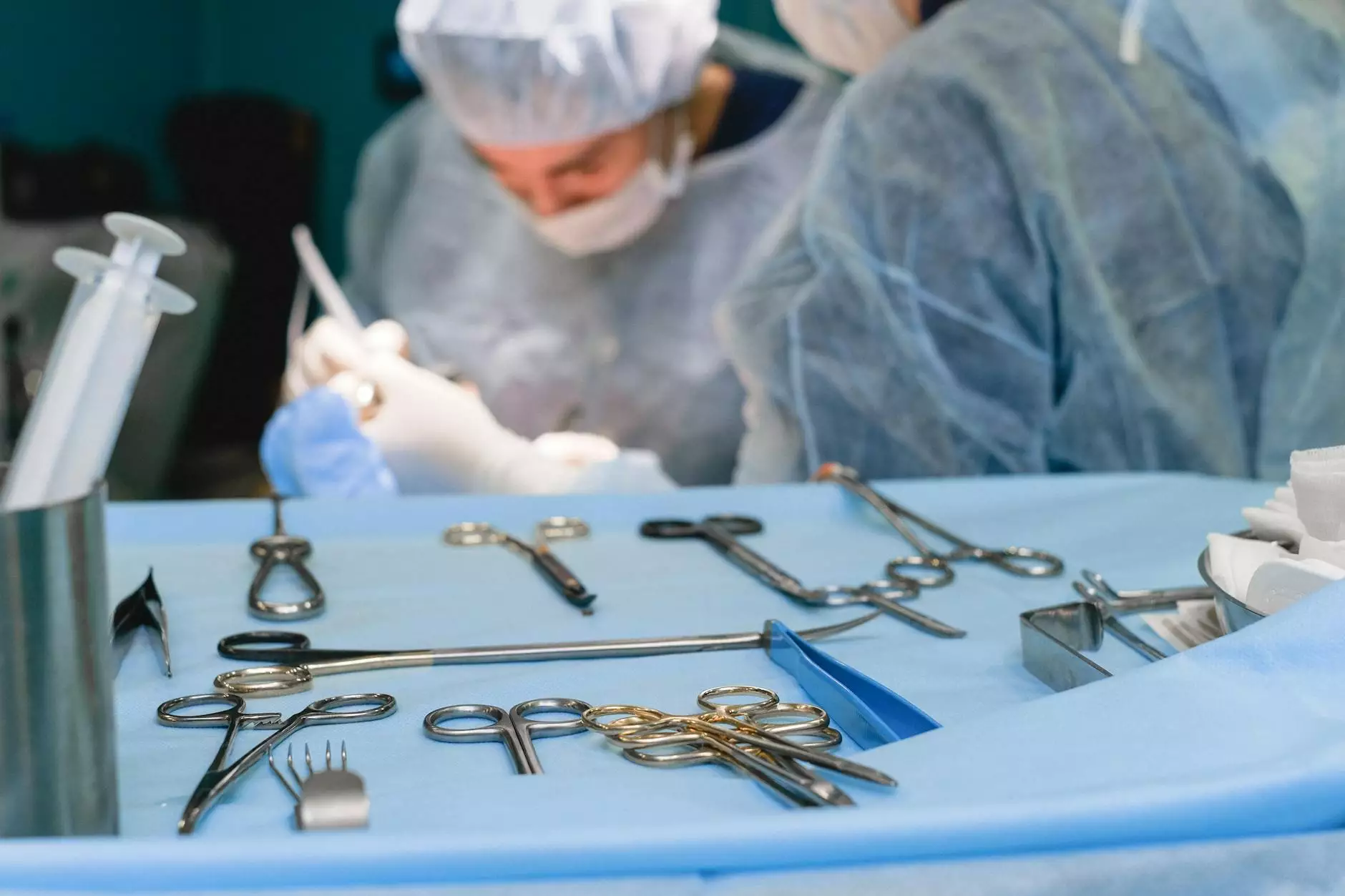The Future of Medical Care: Revolutionary Mobile Surgical Technologies

In today's rapidly evolving healthcare landscape, the advent of mobile surgical technologies has emerged as a game-changer, revolutionizing how surgical procedures are delivered. This innovative approach not only enhances patient access to vital surgical interventions but also ensures that high-quality healthcare is available in even the most underserved areas. In this comprehensive article, we will explore the multifaceted benefits of mobile surgical technologies, the types of services offered, and their significant role in advancing healthcare equity.
Understanding Mobile Surgical Technologies
Mobile surgical technologies encompass a variety of healthcare solutions that enable surgical services to be performed outside traditional hospital settings. These technologies often include specialized vehicles equipped with state-of-the-art surgical equipment, allowing trained medical professionals to provide care in various environments, from rural communities to urban centers. The primary goal is to bring essential medical services closer to patients who may face barriers accessing conventional healthcare facilities.
Benefits of Mobile Surgical Technologies
The benefits of mobile surgical technologies are vast and profound. Here, we detail some of the most significant advantages:
- Increased Access to Care: Mobile surgical units travel to different locations, allowing patients from remote or underserved areas to receive essential surgical care without the need to travel long distances.
- Reduced Healthcare Costs: By minimizing the need for overhead costs associated with permanent facilities, mobile surgical services can offer procedures at lower prices, making healthcare more affordable.
- Urgent Response Capabilities: In the aftermath of natural disasters or during public health emergencies, mobile surgical technologies can be deployed rapidly to provide critical care where it's needed most.
- Patient-Centric Approach: Mobile surgical units often have a more personalized environment, which can lead to increased patient satisfaction and comfort during procedures.
- Innovation and Technology: With advancements in telemedicine, mobile surgical technologies integrate cutting-edge tools and equipment, offering modern solutions that improve surgical precision and outcomes.
Types of Services Offered
Mobile surgical technologies are not limited to one type of service. Instead, they encompass a wide range of surgical procedures, making them an essential aspect of modern medical care. Below are some common services provided:
1. Outpatient Surgical Procedures
Many mobile surgical units specialize in outpatient surgeries, ranging from minor procedures, such as biopsies and dermatological surgeries, to more extensive operations like orthopedic surgeries. These operations can often be performed with minimal anesthesia and allow patients to recover in the comfort of their homes.
2. Screening and Diagnostic Procedures
Mobile surgical technologies also facilitate essential screening and diagnostic services. This includes mammograms, colonoscopy, and other imaging services, which are vital in identifying health issues before they escalate.
3. Emergency Surgical Interventions
In emergency situations, mobile surgical units can be deployed to provide on-site care. This capability is especially crucial during disaster relief efforts, where quick response times can save lives.
4. Specialty Clinics
Many mobile surgical teams operate specialty clinics focused on particular fields such as cardiology, orthopedics, or obstetrics. These clinics provide targeted expertise and treatments to various patient populations.
The Role of Technology in Mobile Surgical Units
The integration of advanced technology into mobile surgical technologies has transformed how surgeries are performed. Here are some key technological advancements that enhance these services:
- Telemedicine: Remote consultations and follow-ups are made possible through telemedicine, allowing doctors to assess and guide patients via video conferencing.
- Robotic Surgery: Some mobile units are equipped with robotic surgical systems that enhance the precision of procedures, leading to better outcomes and faster recovery times.
- Minimally Invasive Techniques: Mobile surgical units often utilize minimally invasive surgical methods, which reduce recovery time and hospital stays.
- Advanced Imaging: Onboard imaging technologies, such as ultrasound and endoscopy, enable real-time diagnostics during procedures.
Mobile Surgical Technologies and Community Health
The impact of mobile surgical technologies extends beyond individual patients; they significantly influence community health outcomes. By providing services directly within communities, these technologies help in:
1. Promoting Preventive Care
With easy access to surgical services, communities are more likely to participate in preventive care measures, such as regular screenings and check-ups, reducing the risk of severe health issues.
2. Enhancing Health Education
Mobile units often engage in educational outreach, teaching communities about health management, preventive care, and available surgical options.
3. Addressing Health Disparities
By targeting underserved populations, mobile surgical technologies strive to reduce health disparities and ensure everyone has access to essential medical care, regardless of their socioeconomic status.
Case Studies: Success Stories of Mobile Surgical Technologies
Numerous successful implementations of mobile surgical technologies showcase their effectiveness in improving healthcare access and outcomes. Here are a few notable examples:
1. The Mobile Surgery Center in Rural America
A mobile surgical center traveling through rural America has successfully performed thousands of outpatient surgeries, drastically reducing wait times and improving surgical outcomes for local residents.
2. Disaster Response in Puerto Rico
Following the devastation of Hurricane Maria, mobile surgical units were deployed across Puerto Rico, offering essential surgical and medical services to affected populations, highlighting the critical role of rapid response capabilities.
Future of Mobile Surgical Technologies
The future of mobile surgical technologies holds immense potential for reshaping healthcare delivery. As the demand for accessible, high-quality surgical services continues to grow, we can expect further innovations in technology and methodology. Potential developments include:
- Increased Use of Artificial Intelligence: AI-driven analytics could enhance patient assessment and streamline surgical planning.
- Enhanced Training for Surgical Teams: Virtual reality (VR) and augmented reality (AR) could be utilized for training medical professionals in mobile surgical settings.
- Expanded Global Reach: More countries are likely to adopt mobile surgical technologies to address local healthcare challenges, especially in low-income regions.
Conclusion
The integration of mobile surgical technologies into healthcare has the potential to revolutionize surgical care, bridging gaps in access and improving patient outcomes. As we move forward, it is crucial for healthcare providers, policymakers, and communities to embrace these innovations to ensure that quality medical care is within reach for everyone, regardless of location.
At Odulair Mobile Clinics, we are at the forefront of this movement, committed to expanding access to surgical services and enhancing healthcare for communities in need. Together, we can build a healthier future through innovative solutions and dedicated care.









